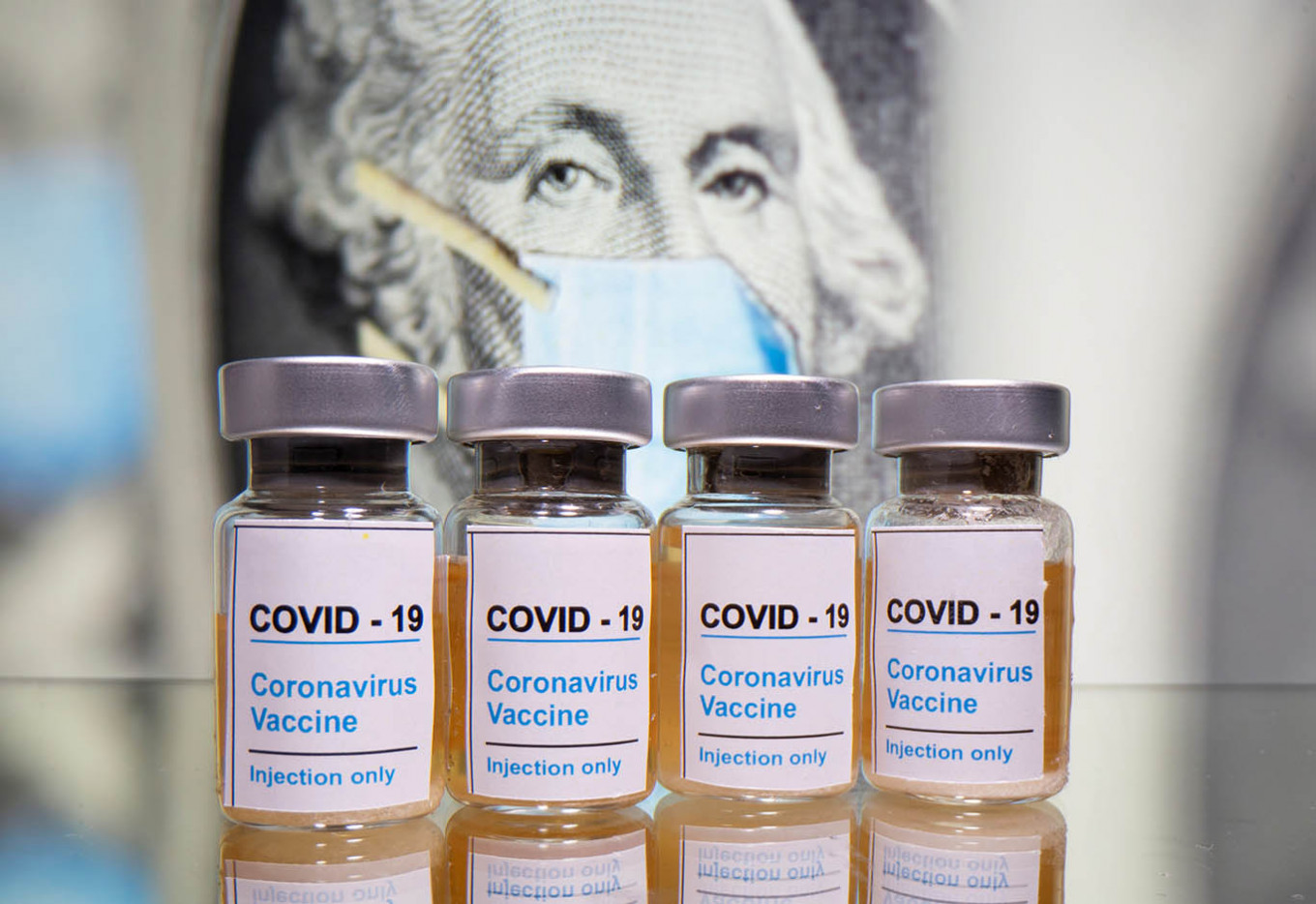Popular Reads
Top Results
Can't find what you're looking for?
View all search resultsPopular Reads
Top Results
Can't find what you're looking for?
View all search resultsDollar near two-month highs on relative strength of US recovery
The view was bolstered by moves in Washington toward fast-tracking more stimulus spending that contrasted with concerns about extended European lockdowns and expectations for a decline in euro zone growth this quarter.
Change text size
Gift Premium Articles
to Anyone
T
he dollar traded near a two-month high versus the euro on Wednesday as investors looked to a widening disparity between the strength of the US and Europe's pandemic recoveries.
The view was bolstered by moves in Washington toward fast-tracking more stimulus spending that contrasted with concerns about extended European lockdowns and expectations for a decline in euro zone growth this quarter.
The dollar was little changed at $1.2043 per euro in the Asian session, after strengthening to $1.20115 overnight for the first time since Dec. 1.
The broader dollar index was mostly flat at 91.046 after rising to a two-month high of 91.283 in the previous session.
The greenback's advances come despite a rally in equities amid improving risk sentiment, defying the currency's historic inverse directional relationship with stocks.
However, many analysts expect the correlation to reassert itself as the year progresses, and for the dollar to decline as global growth recovers amid massive fiscal stimulus and ultra-easy monetary policy.
"The relative growth dynamics between Europe -- weak -- and the US -- better -- are favouring the USD at the moment, but it remains to be seen if this can be a longer-lasting theme," wrote National Australia Bank FX strategist Rodrigo Catril, who expects the euro to weaken below $1.20 in the near-term.
The dollar also benefited from a massive bout of short-covering, especially against the yen where hedge funds had racked up their biggest short bets against the greenback since October 2016.
The US currency was little changed at 104.985 yen after gaining to 105.17 overnight for the first time since Nov. 12.
"It's been a nice run for the yen in terms of strength, but I think there’s maybe some tiring of that move and some retracement," said Bart Wakabayashi, Tokyo branch manager of State Street Bank and Trust.
"I think 105.50 is a nice target, but I don’t seen any real reasons right now that that move would be extended further."
Many see the dollar's rebound since early last month as a correction after its relentless decline last year, although some think the dollar's new-found firmness could reflect a retreat of the bearish sentiment on the currency.
The dollar index has rebounded 1.2 percent this year after an almost 7 percent decline in 2020.
"The bear case is facing a short-term stress test," Westpac strategists wrote in a note.
"Our base case is that without short-term yield support there's a limit to how far US recovery optimism can boost the USD," they wrote. "Global reflation and the Fed's determined dovish stance limits upside potential beyond that."
The New Zealand dollar was a standout Wednesday after data showed the county's jobless rate unexpectedly dropped, which was seen as ruling out prospects for further central bank rate cuts.
The kiwi advanced 0.4 percent to 72.21 U.S. cents.
The Australian dollar added 0.1 percent to 76.182 U.S. cents, looking to snap a three-day decline.
The Aussie managed to gain despite more dovishness from central bankers on Wednesday, with Reserve Bank of Australia Governor Philip Lowe pledging to keep interest rates near zero until there are enough jobs in the economy to push wages growth and inflation higher, a goal that is likely to take another three years.
The RBA held its cash rate at a record low 0.1 percent on Tuesday, and surprised the market by extending its bond buying programme by another A$100 billion.










